Outreach and engagement awards at MSU
Each year, MSU honors faculty and staff who have achieved impact in outreach and engagement. Additionally, the university itself has received several national awards.
Excellence in Outreach Award for MSU faculty and staff
Each year at Spring Convocation, the Office of the Provost honors one faculty member and one staff member for their commitment to and impact in community engagement. Members of the Outreach and Engagement Council review the applications and forward recommendations to the Provost. About the Provost's Excellence in Outreach Award.
2025 Award

Katey Franklin
Katey Franklin, assistant professor in the College of Education, Health and Human Development’s Department of Counseling and director of the Center for Mental Health Research and Recovery, is the recipient of the Excellence in Outreach Award. The award recognizes a faculty member with significant achievements in outreach, an established body of engagement-related scholarship, and a record of collaboration outside the academic community to address challenges or opportunities that align with MSU’s land-grant mission. Sponsored by the Office of Academic Affairs, the Outreach and Engagement Council and MSU Extension, the award includes a $2,000 honorarium.
Franklin engages in significant outreach to understand and enhance Montanans’ mental health and well-being, has an established body of outreach-related scholarship, and collaborates with numerous organizations statewide. She has also advised and provided supervision for more than 270 students as a school counseling track leader and counseling curriculum instructor.
Among other efforts, Franklin is the school liaison for MSU on the Rural Mental Health Preparation Pathway grant shared by MSU and the University of Montana. In this role, she partners with rural school communities to place and supervise graduate counseling students who provide K-12 counseling and clinical services to Montana rural school communities. Often, she places students in rural schools where counseling services did not previously exist. She has also conducted community needs assessments in Park, Sweetgrass, Madison and Custer counties and works closely with rural school districts to develop systems and policies that protect and enhance the mental health and well-being of the school and local community.
Franklin also works collaboratively with organizations, community partners and entities that are outside the academic community to mutually address community mental health and well-being challenges. Franklin is a member of the Montana School Counseling Association board of directors, where she serves as the ethics committee chair for the state, collaborates with a local dude ranch to provide counseling services, works with law enforcement to provide trauma-informed training to rural communities, and partners with nonprofit organizations to provide free behavioral and mental health resources to the Montana public.
In addition, Franklin is the principal investigator for a project focused on workforce development in school-based mental health positions and is working collaboratively in her counseling department to develop an online training program for school counseling at MSU. This online school counseling program aims to support individuals seeking a master’s degree in school counseling in Montana and the Rocky Mountain West without necessitating relocation from their home communities.
Past Awards
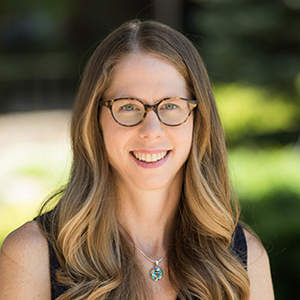
Lindsay Benes
Lindsay Benes, associate professor in the Mark and Robyn Jones College of Nursing on the Missoula campus, is the recipient of the Excellence in Outreach Award, which recognizes a faculty member with significant achievements in outreach, an established body of engagement-related scholarship and a record of collaboration outside the academic community to address challenges or opportunities that align with MSU’s land-grant mission. Sponsored by the Office of Academic Affairs, the Outreach and Engagement Council and MSU Extension, the award includes a $2,000 honorarium.
Benes has demonstrated excellence in outreach in her work with Open Aid Alliance, an organization specializing in harm reduction, to support people with substance use disorders and those living unhoused, said Tracey Koch, the Missoula campus director of the nursing college. In nominating Benes for the award, Koch said Benes facilitates the student experience and fosters student interactions with vulnerable populations. Benes’ research focuses on syringe services and nurse-led treatment programs for individuals with substance use disorders, with the goal of enhancing access to medications for opioid use disorder for Montana’s unhoused population.
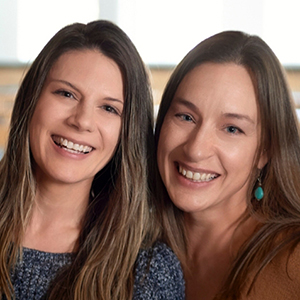
Michelle Grocke-Dewey and Jennifer Munter
Michelle Grocke-Dewey, assistant professor in the Department of Health and Human Development and health and wellness specialist with MSU Extension, and Jennifer Munter, program manager with MSU Extension, have received the Excellence in Outreach Award, which recognizes commitment to MSU’s land-grant mission of outreach and engagement as well as significant outreach and engagement achievements. Sponsored by the Office of Academic Affairs, the Outreach and Engagement Council and MSU Extension, the award comes with a $2,000 honorarium.
Grocke-Dewey and her colleagues recently worked on a research and outreach project assessing the impact of COVID-19 on health behaviors. According to one of her award nominators, Grocke-Dewey utilized her Extension networks and connections to Montana communities to promote engagement from diverse demographic groups. She worked to make sure the results were shared with the communities, and the research also led to three peer-reviewed publications. Moreover, as a response to some of the research findings, Grocke-Dewey created new physical and mental health programming, including a series of mindfulness videos that Montanans can access from their own homes, as well as a series of MSU Extension publications on ways to better manage stress. In addition, Grocke-Dewey has provided leadership in partnerships that address opioid and farm stress challenges facing Montana.
Grocke-Dewey is “a wonderful ambassador for our state, for Montana State University and for mental health awareness and outreach in our country,” the nominator wrote. “She is a true champion for mental health awareness and has a tireless commitment to serving our state.”
As program manager on a federal grant, Munter provides education, outreach and training on opioid and stimulant medications with a focus on preventing the nonmedical use of these substances. Munter has been instrumental in the development of project materials and resources and is diligent when it comes to ensuring community partners are aware of and have access to all project resources, according to nomination materials. Munter is also known for demonstrating a strong work ethic, cultural humility and a willingness to learn.

Christa Merzdorf
Christa Merzdorf, an associate professor in the Department of Microbiology and Cell Biology, received the Excellence in Outreach Award for faculty, which recognizes significant engagement programming and achievements. The award carries a $2,000 honorarium.
Merzdorf is the director of the Trails to Research program, an outreach program she started in 2015 that gives tribal college students the opportunity to be involved in undergraduate research. The program was designed to teach students in STEM disciplines, but more importantly, encourage the students to become excited about science and research. After the success of the pilot program, Merzdorf received nearly $1.4 million from the National Science Foundation to maintain the program and expand it. Merzdorf has been invited to present the results of her outreach work nationally at conferences and to other educators.
The centerpiece of Trails to Research is intensive weeklong courses where tribal college students research the early development of zebrafish. A hands-on approach teaches students the scientific method and helps them develop and test their own hypotheses on topics of their choice, which are often important to their communities. Merzdorf’s program has been defined as a steppingstone for future research experiences, such as undergraduate research at MSU, the Bridges to the Baccalaureate program, INBRE and the Undergraduate Scholars Program.
Since the program launched, more than 200 students have taken courses. The program has engaged around 20 teaching assistants and encouraged several faculty and staff from tribal colleges to take the course.
Merzdorf’s students have said that their Trails to Research experience was applicable to their futures, changed their attitudes toward science and more.
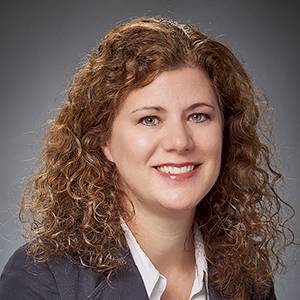
Jamie Cornish
Jamie Cornish, Science Outreach and Education Specialist in MSU Academic Technology and Outreach, has received the Excellence in Outreach Award for a member of the MSU staff. The award recognizes significant engagement programming and achievements. It carries a $2,000 honorarium.
Cornish has demonstrated her commitment to science education and outreach throughout her 20-year career at MSU. During that time, Cornish has been a principal investigator and collaborator on competitive science education and outreach grants from NASA, the National Institutes of Health, the Montana Department of Public Health and Human Services, Montana’s Office of the Commissioner of Higher Education Gear Up, Montana EPSCoR and others. In the last five years, Cornish has written and implemented grants totaling more than $1.6 million, while continuing to train faculty in writing sections of their NSF grants and helping them implement those ideas. Her nominators say that work has made a large impact on the quality and quantity of outreach programs at MSU.
Cornish’s recent work has focused on science education outreach to Montana American Indian youth, in partnership with tribal colleges throughout the state. In that role she has coordinated several successful outreach programs including Rockets on the Reservation, a program that engaged more than 2,500 rural students in all seven Montana reservations with NASA science. More than 360 middle school youth from rural underserved communities have come to MSU over the last six years for the Explore Earth and Space Science camp, which Cornish also coordinated.
During the COVID-19 quarantine, Cornish worked to provide students who were at home with hands-on science lessons. She created an Amskapi Piikani NASA kit with Blackfeet Community College. Filled with place-based activities showcasing Blackfeet knowledge and language, the kits were distributed to more than 500 students. She is currently working on a similar kit for the Apsáalooke (Crow) tribe. Cornish also worked with educators in the Blackfeet tribe to explore ways to increase Native students’ interest in science, mixing Western science with Native ways of knowing to improve Blackfeet youth’s engagement and fascination with science.
On campus, she organized MSU Family Science Day, an event that helps the public interact with MSU students, scientists and staff and learn about their research by exploring hands-on activities in a science festival type atmosphere. Cornish ensured that all 5th grade classes at Title 1 schools in Bozeman can attend the event by securing grant funding for the classes.
Cornish has co-authored several articles in journals with her campus collaborators. Additionally, Cornish was one of the key authors and the editor of a guidebook to Yellowstone’s microbial life that is used in educational programs by the National Park Service at Yellowstone National Park.
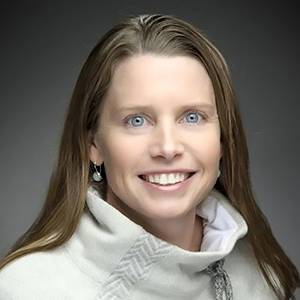
Michelle Flenniken
Michelle Flenniken, an associate professor in the Department of Plant Sciences and Plant Pathology, received the Excellence in Outreach Award for faculty, which recognizes significant engagement programming and achievements. The award carries a $2,000 honorarium.
Flenniken’s research focuses on genetics and virology with an emphasis on the impact of pathogens, particularly viruses, on honeybees. In addition to teaching and lab research, she actively engages with members of the public to educate them about bees and the threats they face as critical pollinators.
“Dr. Flenniken is one of MSU’s most visible professors,” said Mike Giroux, head of the Department of Plant Sciences and Plant Pathology. “She engages the general public from first graders through senior citizens as well as specialized audiences such as beekeepers, entomologists and virologists, and readily volunteers for all available opportunities presented to her and by creating events that both educate and inform the public.”
Flenniken expanded the reach of her scientific work during the COVID-19 pandemic to go beyond insect viruses, working with Bozeman Health Deaconess Hospital to establish SARS-CoV-2 virus testing protocols. Flenniken and lab team members Katie Daughenbaugh, Caley Faurot-Daniels and Verena Lawrence provided lab equipment and additional trained staff to maximize testing capacity. Flenniken also served as a liaison between the hospital and other researchers at MSU.

Alix Byrd
Alix Byrd, assistant operations manager for MilTech, received the Excellence in Outreach Award for staff, which recognizes engagement programming and achievements by a staff member. The award includes a $2,000 honorarium.
The award recognizes employees who go above and beyond the scope of their position in the realms of outreach and engagement. In her work with MilTech, which partners with the U.S. military and Department of Homeland Security to promote the development of new technological advances, Byrd engages with individuals from a variety of government programs and teams across industries to create life-saving technologies that can be implemented more quickly through the MilTech partnership.
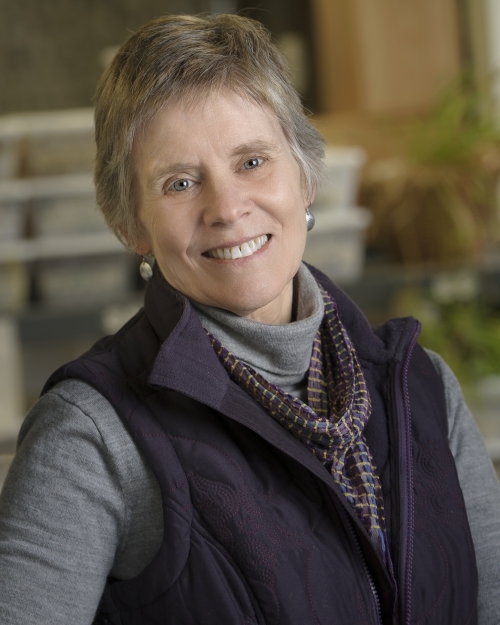
Cathy Whitlock
Cathy Whitlock, a paleoecologist and Regents Professor in MSU’s Department of Earth Sciences, won the Excellence in Outreach Award for faculty. She will receive a $2,000 honorarium.
The award honors Whitlock’s tireless efforts as an ambassador of the university and of climate and environmental science. Whitlock’s accomplishments are manifold. She was the founding co-director of the Montana Institute on Ecosystems and is this academic year’s Presidential Faculty Fellow. She serves on the Governor’s Climate Solution Council and is co-authoring a report on climate change and human health in Montana. In 2018, she was the first person from the Montana University System elected to the National Academy of Sciences.
In 2017, Whitlock was the lead author on the Montana Climate Assessment, a project two years in the making. Whitlock and collaborators around the state engaged with communities and stakeholders in water, forests and agriculture, and Whitlock stressed that the success of the project relied on their input. After the assessment was complete, Whitlock then traveled the state again, leading the effort to share the findings of the assessment with those who may be most impacted by climate change.
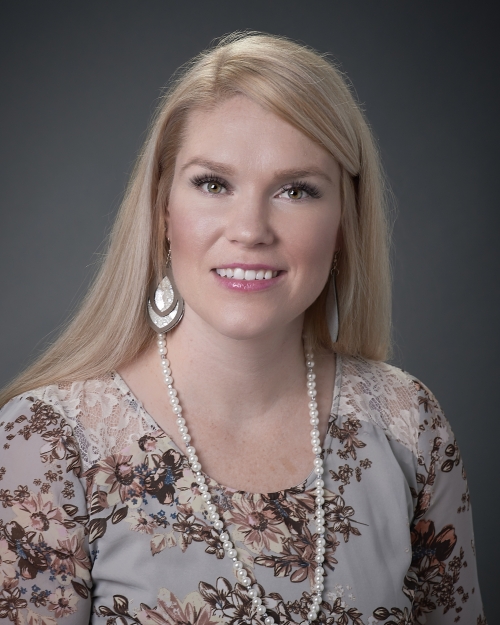
Shantell Frame-Martin
Shantell Frame-Martin, program coordinator of the Montana Noxious Weed Education Campaign, won the Excellence in Outreach Award for staff. She will receive a $2,000 honorarium.
Frame-Martin was nominated for her work on the campaign, which aims to increase public participation in ecologically based integrated weed management. Last summer, the program conducted a survey gauging public knowledge about noxious weeds, which returned favorable results since the implementation of outreach programming largely led by Frame-Martin.
Two of the most successful outreach projects Frame-Martin has organized are the Adopt-a-Trailhead Montana program and the Montana Real Estate Professionals Online Noxious Weed Training. Adopt-a-Trailhead Montana is a cooperative volunteer program designed to protect Montana’s trails from further spread of noxious weeds, and it has led to the installation of 65 boot brush kiosks at trailheads around the state, along with interactive educational booths to highlight the importance of public participation in slowing the spread of noxious weeds. The Montana Real Estate Professionals Online Noxious Weed Training was implemented to increase the knowledge of real estate agents and developers about the economic and environmental impacts of noxious weeds and the laws that govern noxious weed infestations on private properties.
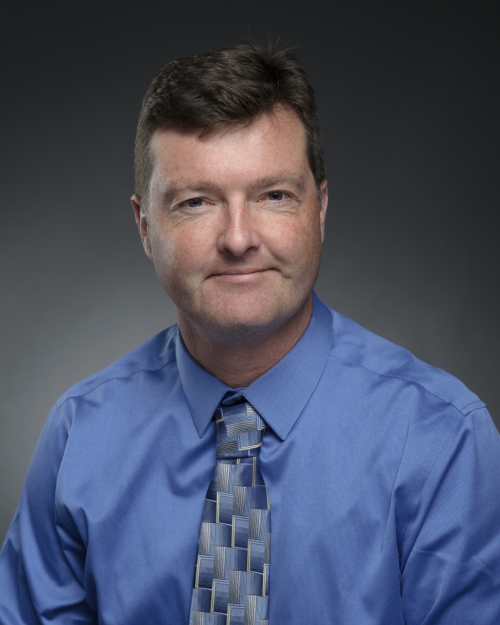
Mark Schure
Mark Schure, assistant professor of community health in the Department of Health and Human Development, won the Excellence in Outreach Award for Faculty. The award comes with a $2,000 honorarium.
Schure was nominated for his outreach and research in depression and for promoting innovative interventions for improving mental health with the MSU Center for Mental Health Research and Recovery. After securing a National Institutes of Health and Montana IDeA Network of Biomedical Research Excellence grant, Schure worked closely with MSU Extension to develop and deliver an online program so rural Montanans can improve their moods through cognitive behavior therapy. The program, Thrive Montana, allows users in the privacy of their own homes to manage feelings of depression and anxiety. The program has proven to reduce depression and anxiety symptoms among adults. A feasibility study has since been published in the Journal of Rural Mental Health and the program is expanding statewide.
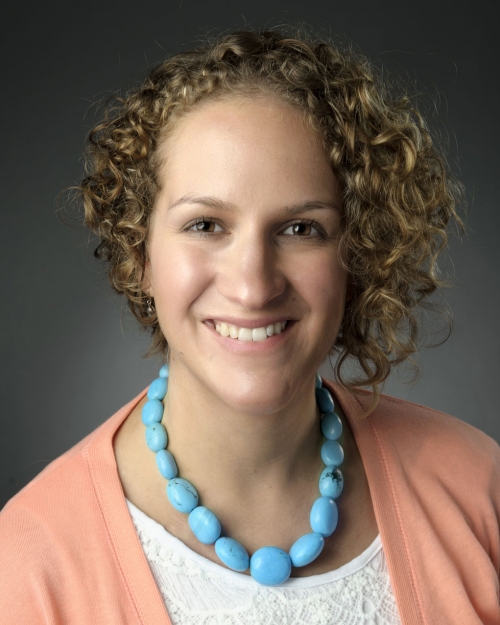
Kayte Kaminski
Kayte Kaminski, assistant dean and director of student success in the MSU College of Education, Health and Human Development, won the Excellence in Outreach Staff Award. She will receive a $2,000 honorarium.
Kaminski was nominated for the award for her creation, outreach and directorship of The Compassion Project, a community-based project designed to bring MSU and Bozeman together through education, discussion and expressions of compassion. Kaminski conceived the Compassion Project as a way to join diverse constituencies to reflect on the value of compassion as a necessary social construct. Kaminski, alongside MSU faculty and staff, worked to create a K-12 curriculum and teacher-training workshops on how to identify and practice compassion. Students in MSU’s multicultural education classes have completed the curriculum training, in addition to the MSU Leadership Fellows student group, MSU Residence Hall Association leaders and more than 200 K-12 teachers and their students and 50 community partners. The initiative’s final project will be a community art installation consisting of more than 8,000 wooden blocks depicting images and themes of compassion.
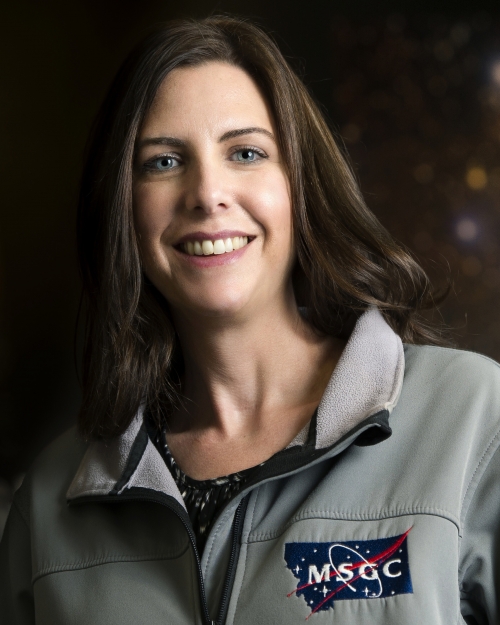
Angela Des Jardins
Des Jardins, director of Montana Space Grant Consortium at MSU, is recognized for her leadership role in the nationwide, MSU-led Eclipse Ballooning Project. She initiated the project in 2014 to engage college and high school students from around the country in a meaningful, hands-on project and secured a major NASA grant to carry out her vision. With Des Jardins’ encouragement and guidance, MSU students designed and built a high-altitude ballooning system that included cameras for livestreaming the 2017 total solar eclipse, then trained more than 50 teams across the country to use it. The project became a platform for students to participate in additional science activities, including a NASA-sponsored experiment about the ability of terrestrial bacteria to survive on Mars. During the eclipse, tens of millions of people viewed the balloon livestreams on NASA’s homepage, helping to make NASA’s broadcasts of the celestial event the agency’s most-watched to date. It is widely understood that this one-of-a-kind outreach activity not only provided a unique view of the eclipse to a worldwide audience but also will have a lasting impact on the hundreds of students involved.
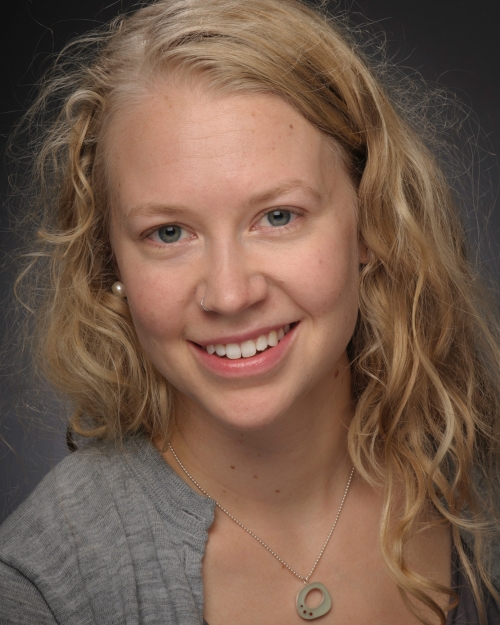
Aubree Roth
Aubree Roth is the farm to school coordinator for the Montana Team Nutrition Program. Roth, working in partnership with the National Center of Appropriate Technology and other partners, coordinated the development, piloting and launch of the Montana Harvest of the Month program, which showcases Montana-grown foods in school meals and snacks, taste tests and educational activities. Under Roth’s leadership, the program is expanding beyond the K-12 school setting to reach early care and education programs and hospitals throughout Montana. Roth also facilitates the state’s Farm to School Leadership Team, has planned two farm to school summits and coordinates the annual Montana Crunch Time, a celebration encouraging people to eat locally and regionally grown apples. Colleagues say Roth constantly strives to improve her skills and challenge herself to gain new knowledge. They also say she is effective in engaging new partners while maintaining effective collaborations and relationships.
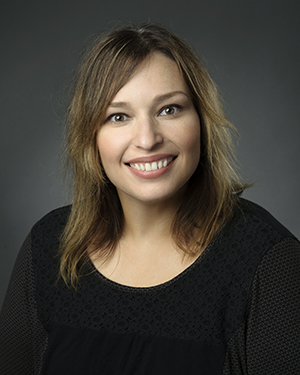
Monica Skewes
Monica Skewes is an assistant professor in the Department of Psychology. Skewes is recognized for her research and community engagement, as well as for her work as a frequent speaker and trainer at MSU and across the state, particularly in the areas of diversity and inclusion. As an investigator for MSU's Center for American Indian and Rural Health Equity (CAIRHE), Skewes has established close collaboration with community partners from the Assiniboine and Sioux tribes of the Fort Peck Reservation in northeastern Montana, establishing, among things, the Fort Peck Substance Abuse and Resilience Project. She is known for integrating themes of cultural humility and inclusion into her research, for presenting her findings in an accessible way, and for striving for equitable, trusting relationships with Montana's Native communities. In addition to regularly sharing her research with communities on the Fort Peck Reservation, she speaks frequently on issues of alcohol and drug addiction and offers cultural awareness and training workshops to MSU clubs and organizations.
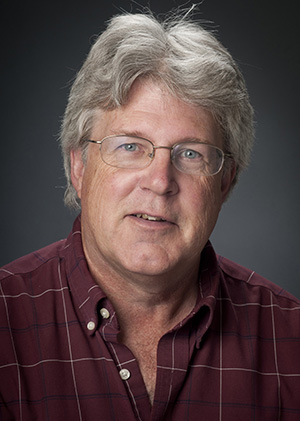
Jeffrey Littlefield
Jeffrey Littlefield is a research scientist in the Department of Land Resources and Environmental Sciences. Littlefield is recognized for his tireless service in managing noxious weeds around the state. As quarantine officer of the biocontrol facility at MSU's Plant Growth Center, Littlefield works widely with public lands agencies, private landowners, federal regulators and MSU researchers to find effective ways of using insects and other biological agents to contain noxious weeds. In addition to maintaining the MSU biocontrol facility and conducting field work, Littlefield regularly works with labs around the world to identify new and effective agents. Those familiar with his work at MSU since the late 1980s say that his outreach has had an extraordinary, long-term impact on thousands of acres of Montana's wild and agricultural lands.
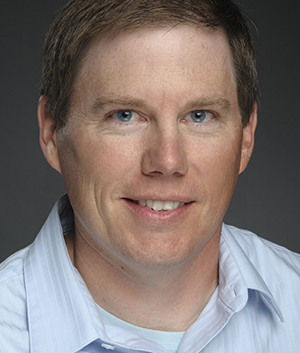
Kevin Amende
Kevin Amende is an assistant professor in the Mechanical and Industrial Engineering Department and head of the department’s Thermal Processes Lab. Amende joined the College of Engineering faculty in 2004, where he teaches in the Mechanical Engineering Technology Program and mentors students interested in the heating, ventilation and air conditioning (HVAC) industry. Amende’s outreach activities include his work as the faculty representative on the building committee for the $50 million, 100,000-square-foot Norm Asbjornson Innovation Center, currently being designed to house multidisciplinary engineering teaching and research activities.
Also, Amende founded the Bozeman section of the Big Sky chapter of the American Society of Heating, Refrigeration and Air Conditioning Engineers (ASHRAE), and he has helped support the MSU student chapter of the group. He also works to promote engineering professions to Montana’s K-12 students.
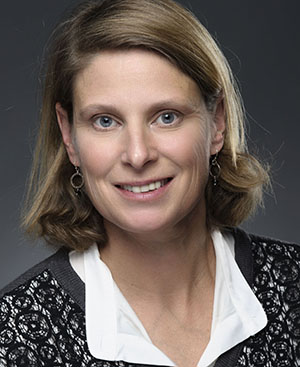
Suzi Taylor
Suzi Taylor is the assistant director of outreach and communications for MSU Extended University and statewide co-leader of the Montana Girls STEM (science, technology, engineering and math) Collaborative Project. Taylor works to spread the word about MSU’s STEM outreach efforts, including those of EPSCoR, Montana Institute on Ecosystems, the Thermal Biology Institute and others. She spearheads efforts at engagement around projects involving the National Science Foundation, NASA and the U.S. Department of Energy.
According to her colleagues, Taylor brings creativity and an energetic approach to her efforts to muster the maximum outreach impact – whether through public relations channels or hands-on educational experiences for Montana school children – of the STEM programming that helps MSU remain a leading example of the land-grant university system in action.
Stephanie Gray
Stephanie Gray is the program development manager for Gallatin College MSU. In just two years, Gray has gained a reputation as an exceptional program development manager for Gallatin College. She meets with local businesses, high schools and communities throughout Gallatin and Park counties to learn their needs so she can develop programs that will best serve students and the businesses that will eventually hire them. She also attains and manages all the grants that support those programs. Her work has benefited hundreds of area high school and two-year students and helped build the work force across southwest Montana.
Charles (Bill) McLaughlin
Charles (Bill) McLaughlin is a teaching professor in the Department of Chemistry and Biochemistry. For the past five summers, McLaughlin has held a four-day workshop called the Science Horizons Initiative to help teachers on Montana’s Indian reservations develop a new science curriculum unit. The teachers come to MSU during the summer to interact with experts in curriculum, science disciplines and Native American programs. During the school year, participating teachers must present their work at district or regional meetings, and McLaughlin follows up by visiting the teachers’ classrooms. McLaughlin has been called an inspiration for his single-handed impact on teachers and thousands of Native American students.
Sandy Bailey
Sandy Bailey is a professor and Extension family and human development specialist. Since 2001, Bailey has served as the MSU Extension Family & Human Development Specialist. In that role, she has developed many effective programs and innovative partnerships, including the successful Montana Grandparents Raising Grandchildren Project. Bailey began the program after finding that, due to family crises, more grandparents were taking on a primary parenting role for their grandchildren. In addition to other methods of support, the program trains support group facilitators and offers educational conferences and other resources for grandparent caregivers. Bailey also conducts research with the Montana Grandparents Raising Grandchildren Project.
Joel Schumacher
Joel Schumacher is an Extension Specialist affiliated with the Department of Agricultural Economics and Economics. Schumacher has made outstanding contributions in two vital areas of Extension education: personal finance and energy, especially alternative energy. Schumacher has established himself as one of the top Extension specialist education experts in the country on alternative energy. In the process, he has worked closely with American Indian communities through a collaboration with Fort Peck Community College. One of his most significant contributions in the area of financial planning is his collaboration with Extension Economics professor Marsha Goetting to develop the “Solid Finances” employee education seminar series. The program was initially developed for MSU-Bozeman employees, but it has since spread across Montana.
David Bertelsen
David Bertelsen is the a longtime MSU Extension agent in Wibaux County, Bertelsen has made significant contributions to Extension programs, including agriculture, 4-H, horticulture and community development. Working to connect Wibaux to MSU's outreach resources, Bertelsen initiated a community-visioning project that has sought to grow this "gateway" community. From this effort came a visitor center and rest area that attracts freeway traffic into Wibaux. Bertelsen has helped with the Winter Ag Series, a program that has connected MSU researchers with area producers for 19 years.
David Lageson
David Lageson is a professor of geology in the Department of Earth sciences. Lageson has made a lifetime commitment to outreach, but he literally took that commitment to new heights when he joined a 2012 educational expedition to Mount Everest. As its chief scientist, he helped develop and implement an extensive education and outreach program that inspired students, teachers and the general public in Montana and around the world. He also wrote a chapter on the geology of Mount Everest for a new National Geographic book. Lageson's chapter explains the origin of Mount Everest and the tectonic evolution of the Himalayas. Lageson also organized National Geographic's "Young Explorers" program to help develop the next generation of explorer/journalists.
HRDC Commitment to Community Award
In August 2018, Montana State University received the Human Resource Development Council’s 2018 Commitment to Community Award, honoring the university for its dedication of time and talent to HRDC efforts. Read the news article.
Innovation and Economic Prosperity Awards (APLU)
Connections Award: 2018
In 2018, MSU won the Connections Award in the sixth annual Innovation and Economic Prosperity, or IEP, University Awards given by the Association of Public and Land-grant Universities. The award is the grand prize in a competition that recognizes public research institutions for their economic engagement efforts, specifically their work with public- and private-sector partners in their states and regions to support economic development through things like innovation and entrepreneurship, technology transfer, talent and workforce development, and community development. MSU was recognized for its working engaging with American Indian communities.
Talent award: 2016
In 2016, MSU won the “talent” category of the Association of Public and Land-grant Universities’ fourth annual Innovation and Economic Prosperity Awards. It was one of six universities to be named a finalist for the awards; those six universities competed for four different awards that recognize different components of university economic engagement: talent, innovation, place and connections. Read the news article.
C. Peter Magrath University Community Engagement Award
In 2011, Montana State University was honored as the national recipient of the C. Peter Magrath University Community Engagement award from the American Association of Public Land-grant Universities (APLU.) Given just once a year, the award recognizes a four-year public university that embraces outreach and community engagement and comes with a $20,000 prize. Montana State was recognized for the contributions its students have made in bringing clean water to a region in Kenya through the work of the MSU chapter of Engineers Without Borders.
In 2014, MSU's Towne's Harvest Garden, a student-initiated farm and community-supported agriculture project, received a commendation from the APLU as an exemplary outreach and engagement project.
